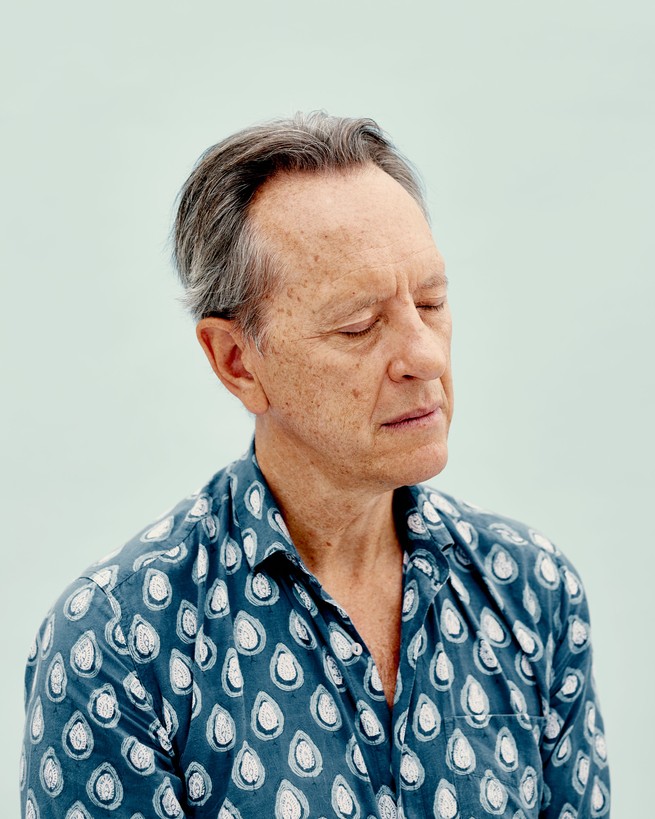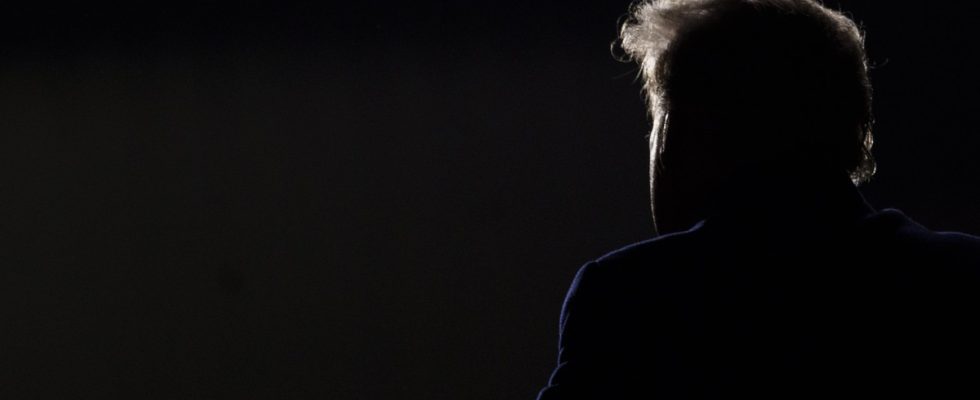This is an edition of The Atlantic Daily, a newsletter that guides you through the biggest stories of the day, helps you discover new ideas, and recommends the best in culture. Sign up for it here.
Donald Trump stands indicted for attempting to thwart the peaceful transfer of power and subvert the rights of American citizens. This is the moment that will decide our future as a democracy.
First, here are three new stories from The Atlantic:
This Is the Case
Over the past year, state and federal prosecutors have alleged that Donald Trump went on something like a crime spree as a presidential candidate, as the sitting president, and then as a private citizen after his defeat. The charges, from Manhattan to Mar-a-Lago, include business fraud, the illegal retention of classified material, and the destruction of evidence.
All of these accusations, however, pale in importance next to the indictment handed down today.
Trump is accused of multiple conspiracies against the United States, all designed to keep him in power against the will of the voters and in violation of the Constitution. The former president—once our chief executive, the commander in chief, the leader we entrusted with the keys to nuclear hell—is accused of knowing that he lost a free and fair election, and, rather than transferring power to a duly elected successor, engaging in criminal plots against our democracy, all while firing up a mob that would later storm the Capitol. (The Trump campaign issued a rambling statement that called the charges “fake.”)
Long before now, however, Americans should have reached the conclusion, with or without a trial, that Trump is a menace to the United States and poisonous to our society. (Senator J. D. Vance of Ohio once referred to Trump as “cultural heroin,” but that was before he decided to seek power in the Republican Party.) The GOP base, controlled by Trump’s cult of personality, will likely never admit its mistake: As my colleague Peter Wehner writes, Trump’s record of “lawlessness and depravity” means nothing to Republicans. But other Republicans now, more than ever, face a moment of truth. They must decide if they are partisans or patriots. They can no longer claim to be both.
The rest of us, as a nation but also as individuals, can no longer indulge the pretense that Trump is just another Republican candidate, that supporting Donald Trump is just another political choice, and that agreeing with Trump’s attacks on our democracy is just a difference of opinion. (Those of us who share our views in the media have a particular duty to cease discussing Trump as if he were a normal candidate—or even a normal person—especially after today’s indictment.) I have long described Trump’s candidacies as moral choices and tests of civic character, but I have also cautioned that Americans, for the sake of social comity, should resist too many arguments about politics among themselves. I can no longer defend this advice.
The indictment handed down today challenges every American to put a shoulder to the wheel and defend our republic in every peaceful, legal, and civilized way they can. According to the charges, not only did Trump try to overturn the election; he presided over a clutch of co-conspirators who intended to put down any further challenges to Trump’s continued rule by force. According to the indictment:
The Deputy White House Counsel reiterated to Co-Conspirator 4 that there had not been outcome-determinative fraud in the election and that if the Defendant [Trump] remained in office nonetheless, there would be “riots in every major city in the United States.” Co-Conspirator 4 responded, “Well, [Deputy White House Counsel], that’s why there’s an Insurrection Act.”
The Insurrection Act allows the president to deploy the U.S. armed forces against American citizens. The alleged plot inside the White House was not merely to invalidate an election; it included the possibility of unleashing the American military against its own people.
This is why we can no longer merely roll our eyes when an annoying uncle rhapsodizes about stolen elections. We should not gently ask our parents if perhaps we might change the channel from Fox during dinner. We are not obligated to gingerly change the subject when an old friend goes on about “Demonrats” or the dire national-security implications around Hunter Biden’s genitalia. Enough of all this; we can love our friends and our family and our neighbors without accepting their terms of debate. To support Trump is to support sedition and violence, and we must be willing to speak this truth not only to power but to our fellow citizens.
Trump and his media enablers, of course, will fume that any criticism of choices made by millions of voters is uncivil and condescending—even as they paint other American citizens as traitors who support pedophiles and perverts. Trump has made such accusations, and the implied threat of violence behind them, part of the everyday American political environment. This brutish bullying is aimed at stopping the rest of us from speaking our mind. But after today, every American citizen who cares about the Constitution should affirm, without hesitation, that any form of association with Trump is reprehensible, that each of us will draw moral conclusions about anyone who continues to support him, and that these conclusions will guide both our political and our personal choices.
This is painful advice to give and to follow. No one, including me, wants to lose friends or chill valued relationships over so small a man as Trump. But our democracy is about to go into legal and electoral battle for its own survival. If we don’t speak up—to one another, as well as to the media and to our elected officials—and Trump defeats us all by regaining power and making a mockery of American democracy, then we’ll all have lost a lot more than a few friendships. We face in Trump a dedicated enemy of our Constitution, and if he returns to office, his next “administration” will be a gang of felons, goons, and resentful mediocrities, all of whom will gladly serve Trump’s sociopathic needs while greedily dividing the spoils of power.
In the 1982 film The Verdict, Paul Newman plays Frank Galvin, an ambulance-chasing attorney with an alcohol addiction who takes on what he thinks will be a routine malpractice suit and soon finds himself fighting for justice against powerful institutions determined to stop him. On the eve of the trial, all seems lost. His mentor and former partner tries to comfort him. “There’ll be other cases,” his friend says. Galvin knows better. “There are no other cases,” he says quietly, with his eyes closed. “This is the case.” He repeats this truth, whispering to himself, over and over: “There are no other cases. This is the case.”
Jack Smith has indicted Donald Trump for trying to overthrow our system of government. There are no other cases. This is the case.
Related:
Today’s News
- A Michigan prosecutor charged a former state representative and a former attorney-general candidate in an investigation into voting-machine tampering in the state.
- Henrietta Lacks’s family has settled with Thermo Fisher Scientific. They accused the company of exploiting cells taken from Lacks more than 70 years ago without her consent.
- Former President Donald Trump’s political-action committee has become financially strained because of legal fees. It now has less than $4 million left in its account.
Dispatches
Explore all of our newsletters here.
Evening Read
What If Friendship, Not Marriage, Was at the Center of Life?
By Rhaina Cohen
Kami West had been dating her current boyfriend for a few weeks when she told him that he was outranked by her best friend. West knew her boyfriend had caught snatches of her daily calls with Kate Tillotson, which she often placed on speaker mode. But she figured that he, like the men she’d dated before, didn’t quite grasp the nature of their friendship. West explained to him, “I need you to know that she’s not going anywhere. She is my No. 1.” Tillotson was there before him, and, West told him, “she will be there after you. And if you think at any point that this isn’t going to be my No. 1, you’re wrong.”
If West’s comments sound blunt, it’s because she was determined not to repeat a distressing experience from her mid-20s. Her boyfriend at that time had sensed that he wasn’t her top priority. In what West saw as an attempt to keep her away from her friend, he disparaged Tillotson, calling her a slut and a bad influence. After the relationship ended, West, 31, vowed to never let another man strain her friendship. She decided that any future romantic partners would have to adapt to her friendship with Tillotson, rather than the other way around.
Read the full article.
More From The Atlantic
Culture Break

Read. A Pocketful of Happiness, a memoir written by the actor Richard E. Grant after the death of his wife, is a remarkable record of life after loss.
Watch. Babylon 5 (streaming on Amazon Prime Video and Apple TV+) is an eccentric ’90s sci-fi saga whose five-year storyline was planned out in advance.
Play our daily crossword.
P.S.
As you can see, I’m back at the Daily after a short break. I’ve been working on a second edition of my 2017 book, The Death of Expertise, but I was also finishing up teaching summer school at Harvard, something I’ve loved doing for 18 years. Last week, I gave my last lecture as a professor or instructor anywhere, bringing more than 35 years of teaching to a close.
I’ve loved teaching, but summer school was always one of my favorite endeavors, because I know what it’s like both as a teacher and as a student. In 1978 I talked my way into the program for high-school students—despite not being a very good high-school student—at Harvard Summer School, where I fumbled my way through calculus. (I passed. Barely.) But I had my first taste of college, and I finally saw a light at the end of the high-school tunnel.
Studying in summer seems almost unnatural, and so does teaching. (The U.S. Naval War College, where I taught for more than two decades, begins classes in August, which I always fiercely hated.) And yet there’s a gentleness to summer school on a campus that can make it seem like a natural part of a wonderful summer—especially if you’re young. When I came back to Harvard Summer School as an instructor, I had high-school students among undergraduates and even advanced graduate students. Many of them were scared, but I always made sure to tell them that I once sat where they sat (once, literally in the same classroom) and not to worry. I insisted that they take advantage of the glorious summer in Boston. And I watched some of them leave with a bit of the same trepidation I had when I returned home that summer 45 years ago.
It was time to go for me too. I’ve now given all I can offer in the classroom. But I will miss the noisy campus and the cool quiet of the classroom on a steamy day. And I will, more than any of it, miss the students—of all ages, but especially the ones who left with just a bit of wonder and excitement on their face about one day coming back to a campus.
— Tom
Katherine Hu contributed to this newsletter.
When you buy a book using a link in this newsletter, we receive a commission. Thank you for supporting The Atlantic.

